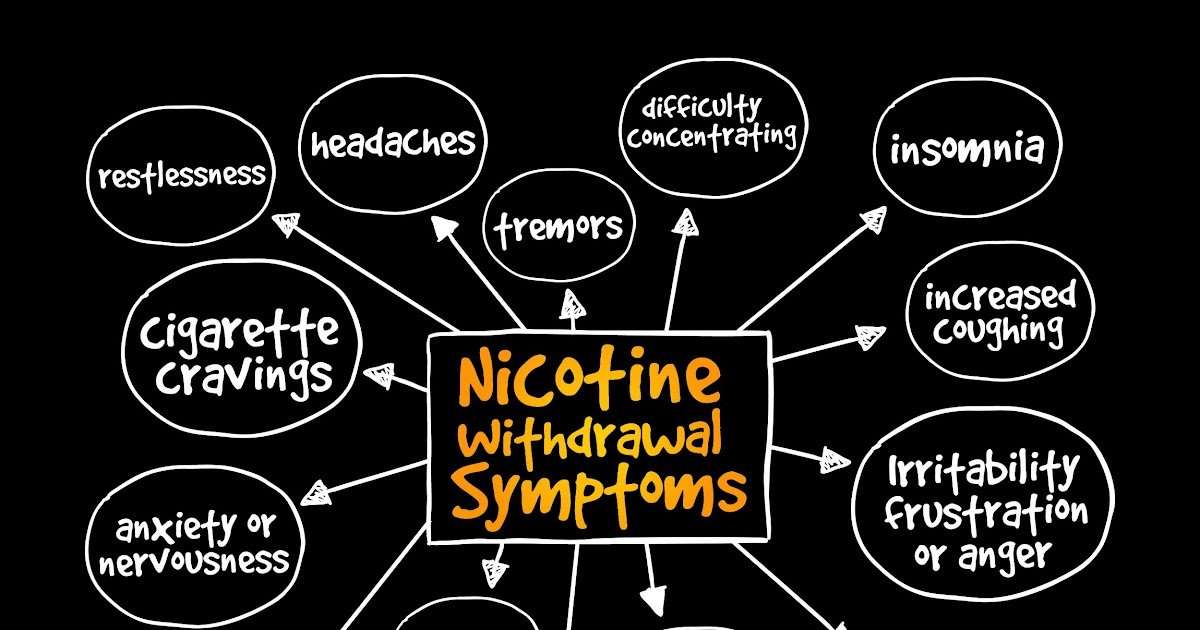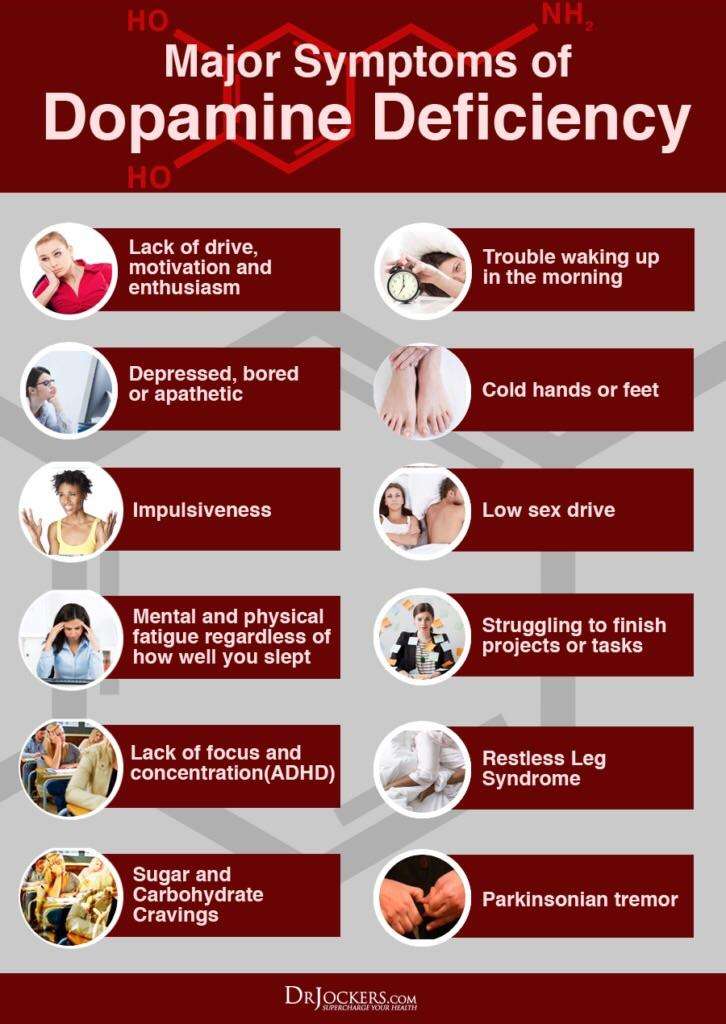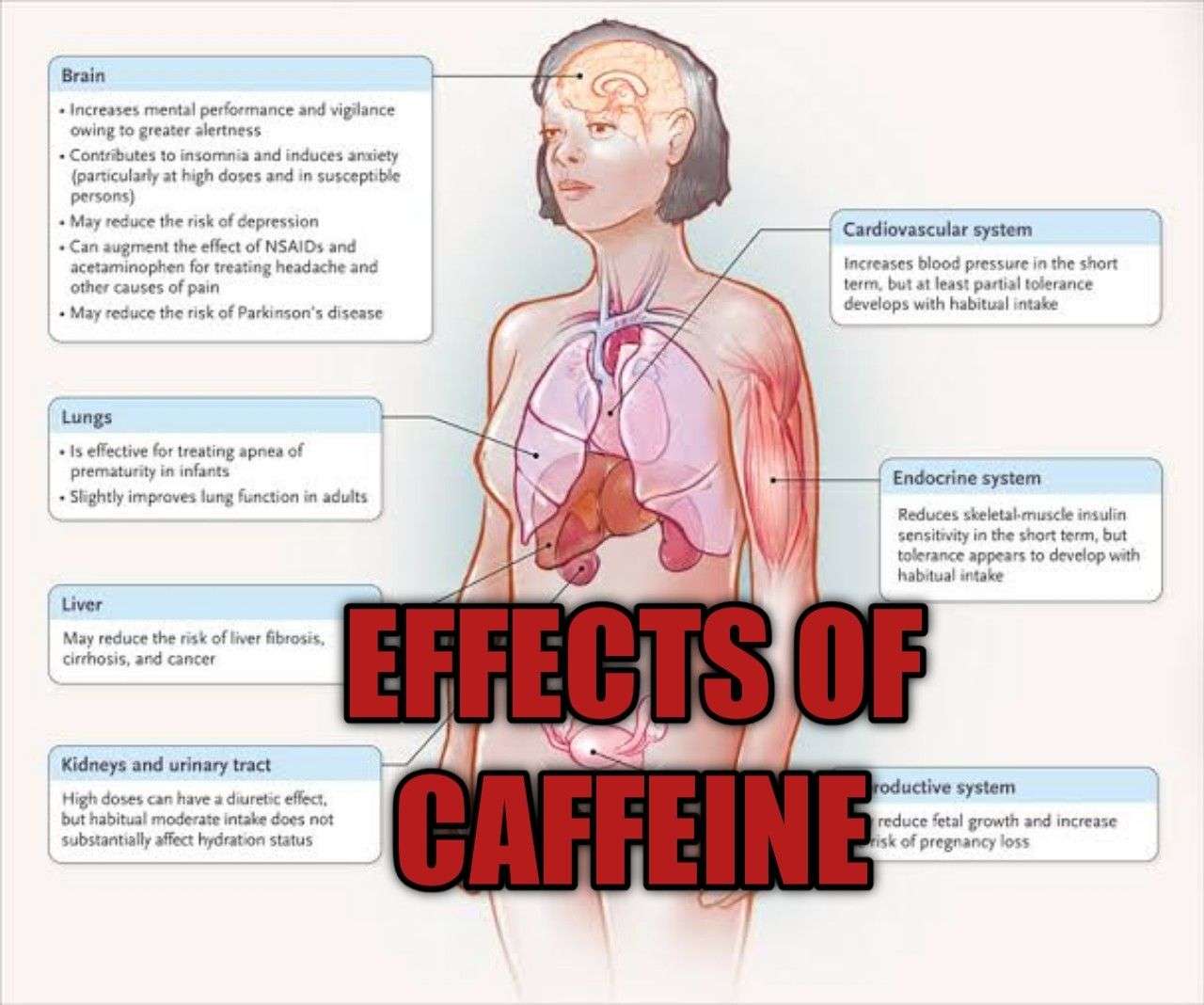Risk Assessment For Caffeine Withdrawal Syndrome
If youre wondering about symptoms and think you might be dealing with caffeine withdrawal syndrome, you can get a risk assessment.
To do this, youd make an appointment with a doctor. They will do a physical exam and get a thorough history, including all medication, supplements, and stimulant use. This is done to rule out any other possible conditions that could cause similar symptoms.
Once other issues are ruled out and symptoms are considered, a doctor should be able to determine the cause. Here are just a few health concerns that will need to be ruled out:
- Anxiety disorder
How Caffeine Affects The Brain
Caffeine is addictive because of the way that the drug affects the human brain and produces the alert feeling that people crave. Soon after Caffeine is consumed, its absorbed through the small intestine and dissolved into the bloodstream. Because the chemical is both water and fat-soluble, its able to penetrate the blood-brain barrier and enter the brain.
Structurally, Caffeine closely resembles a molecule called adenosine thats naturally present in the brain. Caffeine resembles the molecule so much that it can fit neatly into the brain cells receptors for adenosine, effectively blocking them off. Normally, the adenosine produced over time locks into these receptors and produces a feeling of tiredness. When Caffeine molecules are blocking those receptors, they prevent this from occurring; a sense of alertness and energy is experienced until the caffeine is metabolized. Additionally, some of the brains own natural Stimulants are released such as dopamine and work more effectively when the adenosine receptors are blocked. The surplus of adenosine cues the adrenal glands to secrete adrenaline, another Stimulant, and this further increases alertness and reduces feelings of tiredness.
The Top 10 Reported Symptoms Of Caffeine Withdrawal:
Often, people who are reducing caffeine intake report being irritable, unable to work, nervous, restless, and feeling sleepy, as well as having a headache. Many of these symptoms mirror having the cold or flu.
In extreme cases, nausea and vomiting has also been reported. These are very real experiences , and despite recurring jokes, can cause problems with normal functioning. If you experience severe symptoms, seek medical advice.
Read Also: How To Clean Stainless Steel Coffee Pot
How To Treat Withdrawal Symptoms
Here are some tips if you want to decrease or quit caffeine:
- Taper consumption instead of going cold turkey. If you are used to drinking coffee, try half-decaf half-regular and gradually wean yourself off.
- Avoid sources of caffeine. Make sure you are not accidentally reintroducing caffeine. Check labels on packaged sodas, tonics, and teas, even packaged food.
- Hydrate. Dehydration can make withdrawal symptoms worse.
- Take a pain reliever. Take an over-the-counter pain reliever like ibuprofen, acetaminophen, or aspirin to help with withdrawal headaches.
- Get plenty of sleep. You will probably feel tired when you stop consuming caffeine, so help combat this by getting at least 7 to 9 hours a night.
Much of the data collected on caffeine is observational in nature. There have been few randomized, controlled studies.
In 2018, the U.S. Food and Drug Administration acknowledged that for healthy adults, or up to about four cups of coffee, was not associated with dangerous effects.
Safe upper levels of caffeine use during pregnancy is a bit more complicated.
A 2020 review of studies shows that though some experts suggest that pregnant women can consume up to 300 mg per day, other studies have shown that doses of caffeine as low as 100 to 200 mg per day during pregnancy is associated with an increased risk of complications including miscarriage, fetal growth restriction, and low birth weight.
You Could Become Constipated

Caffeine keeps things moving through your intestines, which is why you may feel backed up when you stop drinking your usual cup of java. But never fear, there are plenty of other ways to keep your bathroom trips regular: eat lots of fiber drink plenty of water, and exercise regularly. Your digestive system will thank you. Check out these;natural remedies for constipation.
Also Check: Where To Buy Blueberry Coffee
Quitting Caffeine Going Cold Turkey
I got my wakeup call and quit drinking caffeine cold turkey. No coffee, no coke, no black or green tea .
I have to tell you that it was hard at first. I had some caffeine withdrawal symptoms that I wasnt expecting.
I was a zombie in the morning, having pounding headaches, and night sweats. After a week or so, I started to have more energy and I was less stressed.;
It was initially to get rid of my stomach ache, but it resulted in increased overall wellbeing.;
Here are the benefits I experienced when giving up caffeine and not drinking coffee are:
- Less anxiety
- Better sleep at night
- No stomach ache
- Received a promotion at work . This promotion was a great way for me to start investing my money in Peer-to-Peer lending!
Supplements For Caffeine Withdrawal
Theres little;scientific evidence that supplements can help with caffeine withdrawal, but here are some that are;anecdotally reported to be helpful:
- vitamin C and B complex
- minerals calcium, magnesium, potassium, and zinc
- amino acids tyrosine and DL-phenylalanine
A group of herbal remedies known as adaptogens may be useful for caffeine withdrawal.
Adaptogens mitigate the effects of stress while bringing the body into a state of balance simultaneously;calming and boosting energy without being overstimulating.
Some;adaptogens to consider are ginseng, ginger, ashwagandha, Bacopa monnieri, and;Rhodiola rosea.
All have been used for thousands of years and are well established as safe and effective.
Also Check: What Is The Best Coffee To Make At Home
What Does A Dehydration Headache Feel Like
Symptoms are what youre looking for. Dehydration headaches may be dull or severe migraines. A dehydration headache can cause pain in the front, back, hand, or throughout the brain. A individual suffering from a dehydration headache, unlike a sinus headache, is unlikely to feel facial pain or pressure.
Caffeine Withdrawal Symptoms: Top Fifteen
Caffeine withdrawal is no laughing matter and can be very debilitating for those who are suddenly without caffeine.
If you are or have been an avid coffee, tea, or energy drink consumer then you are aware of how addictive caffeinated beverages can be.
Just a few hours after missing your scheduled dose the caffeine withdrawal symptoms start to set in.
Here are the most common caffeine withdrawal symptoms. Youll be comforted to know that you arent really dying but just detoxing from the caffeine.
Even if you arent normally a habitual caffeine drinker, you may experience negative symptoms when quitting caffeine even if you only consumed it for a few days in a row.
Don’t Miss: Does Folgers French Vanilla Cappuccino Have Caffeine
How Can I Treat A Caffeine Withdrawal Headache
- Gradually reduce your consumption of caffeine instead of stopping suddenly. This can help to reduce the severity of your withdrawal symptoms, although it may take longer for them to go away completely completely. Reduce how much caffeine you have each day over two to three weeks or longer if needed. Put a plan in place to help you stay on track.
- Headaches can be treated with over the counter medications, such as acetaminophen , ibuprofen and aspirin. Remember to avoid medications that contain caffeine.
- Rest and get plenty of sleep.
- Drinking plenty of water to stay hydrated.
Caffeine Withdrawal Is An Official Recognized Disorder
Perhaps surprisingly, caffeine withdrawal is an officially recognized disorder.
In 2013, the American Psychiatric Association released the 5th volume of their Diagnostic and Statistical Manual of Mental Disorders .
Notably, this edition officially recognized caffeine withdrawal as a mental disorder for the first time .
Don’t Miss: Can I Take Linzess With Coffee
Signs Of A Caffeine Addiction
Rather than going by the actual amount of Caffeine consumed per day, Caffeine addiction is discerned by the way that the substance affects an individuals day-to-day functioning. The severity of the addiction is calculated based on how distressed someone feels when they want Caffeine and cant get it and how much of a disruption this causes in their daily life.
The fifth;edition of the;Diagnostic and Statistical Manual of Mental Disorders does not recognize Caffeine addiction as a SUD, but it does recognize it as a condition for future study. According to the DSM-5, problematic Caffeine consumption is characterized by at least three of the following criteria:
- A persistent desire or unsuccessful efforts to cut down or control Caffeine use
- Continued Caffeine use despite knowledge of having a persistent or recurrent physical or psychological problem that is likely to have been caused or exacerbated by Caffeine
- Withdrawal, as manifested by either of the following:
- The characteristic withdrawal syndrome for Caffeine
- Caffeine is taken to relieve or avoid withdrawal symptoms
Withdrawal From Caffeine And Human Tolerance To Caffeine

People who consistently consume caffeine will gradually adapt to the continuous presence of the chemical in their body by increasing their overall number of adenosine receptors in their central nervous system. This occurs since caffeine functions as an antagonist to the receptors in the central nervous system for the neurotransmitter adenosine.
Tolerance adaptation to caffeine has the effect over time of reducing the chemical’s stimulatory effects. These adaptive responses to caffeine also have the effect of making the person more sensitive to adenosine, and thus when the intake of caffeine is reduced then the adenosine’s natural physiological effects will create withdrawal symptoms.
Source:
Don’t Miss: How To Reduce Acid In Coffee
What Is Caffeine Withdrawal
Firstly, it is important to remember that caffeine is actually a drug.
Not just any drug either; caffeine is the most widely consumed drug in the world, with over 85% of people consuming at least one caffeinated drink per day
Caffeine withdrawal refers to the side effects many people experience upon the cessation of caffeine/coffee.
These effects may range from mild to severe and typical symptoms include anxiety, fatigue and headaches .
Caffeine Heals And Hurts
Caffeine can both help cure and cause headaches.
Since caffeine narrows the blood vessels that surround your brain, when you stop taking it they expand again, and that can cause pain, WebMD states.
But caffeine is also an anti-inflammatory substance that can help cure headaches, by, again, narrowing blood vessels.
WebMD says if you suffer from caffeine withdrawal headaches, monitor your headaches and note what helps make them go away.
It also advises getting enough sleep, drinking water, eating nutritious foods and getting exercise every day. Also, it might be worth it to try meditation, massage or other relaxation methods instead of medications.
You May Like: Is Decaf Coffee Good For Constipation
How Long Do Caffeine Withdrawals Last
The average amount of caffeine consumed by Americans is 280 mg per day. This is equivalent to about two cups of coffee or up to five soft drinks. The accepted safe level of daily consumption is no more than 400 mg, or:
- Four cups of coffee
- Two energy drinks
- Up to ten cans of soda
The length of time you may deal with caffeine withdrawals after quitting varies. The longer youve been consuming caffeine, the longer it can take to no longer feel withdrawal symptoms.
caffeinegreen tea
Expect caffeine withdrawals to start within 12 hours of reducing or no longer consuming it. Symptoms can last up to nine days before your body and brain adjust to the removal of caffeine.
Debate Over Adenosine Receptors Tolerance And Caffeine Withdrawal Symptoms
There is some debate in scientific circles about the increase in adenosine receptors being the main cause of building up tolerance to caffeine’s stimulating effects, with some evidence pointing toward a conclusion that there are also other causes at work which help to explain people developing a tolerance to large doses of caffeine.
Also Check: How To Make Irish Coffee With Baileys
Caffeine Withdrawal Symptoms: The Dark Side Of Coffee
Last Updated on September 17, 2018 by Michael Joseph
Coffee is one of the most popular drinks in the world.
It tastes delicious, its good for our health, and its very popular at social gatherings and for bringing people together.
However, quitting coffee has side effects.
For some people who wish to quit coffee, there are some unpleasant caffeine withdrawal symptoms to deal with.
This article takes a look at the issue in detail and examines what these withdrawal symptoms are, why they happen and how we can deal with them.
Dont Drink Caffeine Too Close To Bedtime
Getting adequate sleep can be difficult if you consume too much caffeine throughout the day or too close to bedtime.
Since caffeine has an average half-life of about 5 hours, half of the total amount of caffeine you consume;remains in your body.
Therefore, to avoid caffeine affecting your sleep, its generally recommended that you avoid consuming it within 56 hours of bedtime.
The disruption that you experience throughout your sleep or the difficulty in falling asleep can compound the feelings of sleepiness and fatigue the next day.
Depending on your caffeine tolerance and the time you usually go to bed, it may be best to only consume caffeinated beverages early in the day.
Read Also: How Is Dunkin Iced Coffee Made
Lack Of Focus And Difficulty Concentrating
Another potential side effect of stopping our caffeine habit is a lack of focus and difficulty concentrating.
The reasons for this are again down to caffeines stimulant properties.
Notably, a wide range of studies demonstrates that coffee consumption improves focus, concentration and cognitive performance.
Furthermore, research shows that caffeine can efficiently compensate for reduced mental and physical capacity following poor sleep .
These above findings are why coffee makes such a popular drink for early-morning meetings; it helps us to clear our mind and concentrate. This effect would be especially desirable for those not getting adequate sleep.
When we stop drinking coffee, we;feel the loss of these beneficial energizing effects, which leads to difficulty concentrating/focusing.
Although there are numerous coffee alternatives, they just are not coffee.
Does Caffeine Have Any Hepatoprotective Properties

Yes, in fact some people who have shown to be at high risk for liver disease have been shown to have less severe liver injury associated with increasing caffeine consumption. This may include people with obesity, hemochromatosis and alcoholisms.
Because of this, people who drink coffee but want to quit caffeine may want to look into instead of cutting out coffee entirely, so that they can continue to benefit from its health protecting properties.
Also Check: What Coffee Do You Use For Espresso
Caffeine Can Make You Tired
One of the most surprising side effects of caffeine is that it can make you tired.
Thats because caffeine does not provide true energy;and;is not even a direct stimulant.
Caffeine works indirectly by;binding to receptors in your brain for adenosine, a brain chemical that acts like a brake;on brain activity.
Adenosine helps you register that you are;tired and need to rest.
When your system is flooded with caffeine, adenosine can no longer turn off your brain.
So your brain on caffeine is like a car with no brakes and the accelerator pedal pushed to the floor.
Caffeine creates a vicious cycle of;temporary energy boosts with subsequent crashes, interrupted sleep, and a need for more caffeine.
The Addictive Nature Of Caffeine
Caffeine is an addictive chemical compound, meaning its regular use leads to dependence, tolerance, and withdrawal. Once youve become tolerant to caffeine, you need more and more caffeine to get its stimulating effects, and if you dont consume it, your body goes into withdrawal mode.
When you abruptly stop your normal daily caffeine ingestion, a characteristic withdrawal syndrome develops. This syndrome, aptly named caffeine withdrawal syndrome, has been well-researched and is included in the DSM-5, the latest edition of the Diagnostic and Statistical Manual of Mental Disorders, as a substance-related and addictive disorder.
Also Check: What Travel Mug Keeps Coffee Hot The Longest
What Products Contain Caffeine And How Much
A tablet of Excedrin contains about sixty-five milligrams of caffeine while a regular strength caffeine tablet has about one hundred milligrams of caffeine. There are two hundred milligrams of caffeine in an extra-strength caffeine tablet.
Another example of a common product with plenty of caffeine in it is chocolate. There are about ten milligrams of caffeine in an average milk chocolate bar. Dark chocolate, by comparison, may have about 30 milligrams of caffeine. There are some dark chocolate bars that have as much as 160 milligrams of caffeine so it can vary considerably by the type and the quality of the chocolate.
Six ounces of a typical green tea will contain about thirty milligrams of caffeine while the very same amount of black tea will have about fifty milligrams of caffeine.
Amount of Caffeine in Coffee continued: You will get about thirty-four milligrams of caffeine from 12 ounces of Coke while a Mountain Dew will give you a whopping 54 milligrams of caffeine. A Red Bull energy drink has about eighty milligrams of caffeine while a Monster energy drink has about 160 milligrams of caffeine.